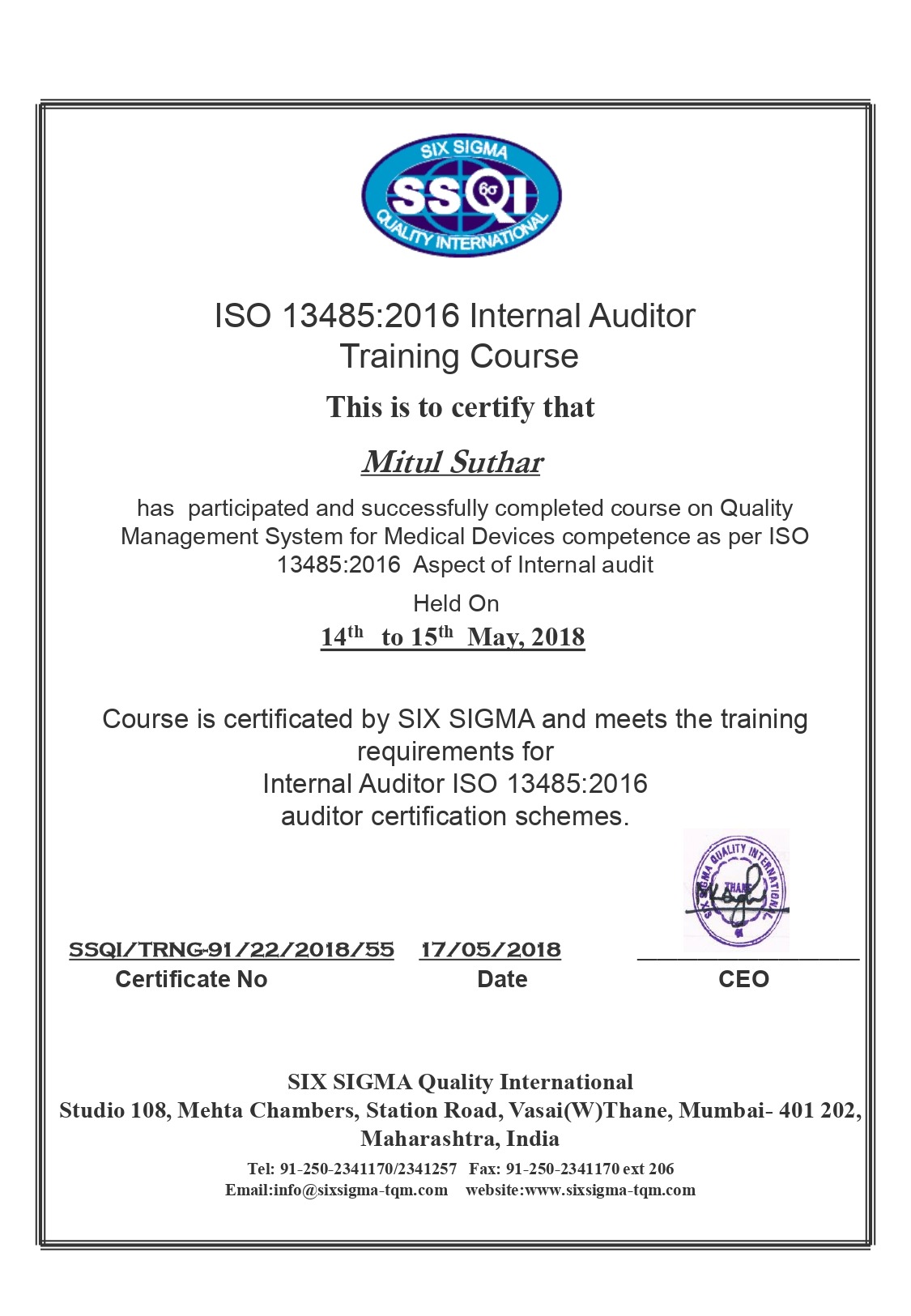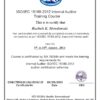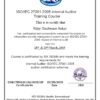Sale!
Internal Auditor ISO 13485
Original price was: ₹17,000.00.₹8,500.00Current price is: ₹8,500.00.
ISO 13485 is an international standard that specifies requirements for a quality management system (QMS) for organizations involved in the medical device industry. Internal auditing is a crucial part of maintaining compliance with this standard. Here’s an overview of the role of an internal auditor in the context of ISO 13485:
### Responsibilities of an Internal Auditor ISO 13485:
1. **Planning Audits**: Develop an audit plan based on the requirements of ISO 13485 and the organization’s QMS. This includes determining the scope, objectives, and criteria for the audit.
2. **Conducting Audits**: Perform audits of the organization’s processes, procedures, and documentation to assess compliance with ISO 13485 requirements. This involves reviewing records, interviewing personnel, and observing activities.
3. **Identifying Nonconformities**: Identify and document any nonconformities or areas of non-compliance with ISO 13485 during the audit. This includes deviations from the standard’s requirements or the organization’s own QMS.
4. **Reporting Findings**: Prepare audit reports detailing the findings, including observations, nonconformities, and opportunities for improvement. Present these findings to management and relevant stakeholders.
5. **Follow-up**: Monitor and track corrective actions taken by the organization to address identified nonconformities. Verify the effectiveness of these corrective actions through follow-up audits or reviews.
6. **Continuous Improvement**: Provide recommendations for improving the QMS and enhancing compliance with ISO 13485. Encourage a culture of continuous improvement within the organization.
### Skills and Qualifications:
– **Knowledge of ISO 13485**: Familiarity with the requirements and principles of ISO 13485 is essential for an internal auditor.
– **Audit Experience**: Experience in conducting internal audits, preferably in the medical device industry or a related field.
– **Attention to Detail**: Ability to identify discrepancies, inconsistencies, and nonconformities during audits.
– **Communication Skills**: Effective communication skills are needed to interact with employees at all levels, present findings, and explain requirements.
– **Analytical Skills**: Strong analytical and problem-solving skills to evaluate processes, procedures, and documentation.
– **Certification**: Some organizations may require or prefer internal auditors to have certification as an ISO 13485 Lead Auditor or similar.
### Importance of Internal Auditing:
Internal auditing plays a vital role in ensuring that the organization’s QMS is effective, compliant with ISO 13485, and capable of consistently delivering safe and effective medical devices. It helps identify areas for improvement, strengthens the QMS, and demonstrates the organization’s commitment to quality and compliance.
In conclusion, an internal auditor for ISO 13485 plays a critical role in maintaining and improving the quality management system of an organization in the medical device industry. Their responsibilities include planning and conducting audits, identifying nonconformities, reporting findings, and promoting continuous improvement.










Reviews
There are no reviews yet.